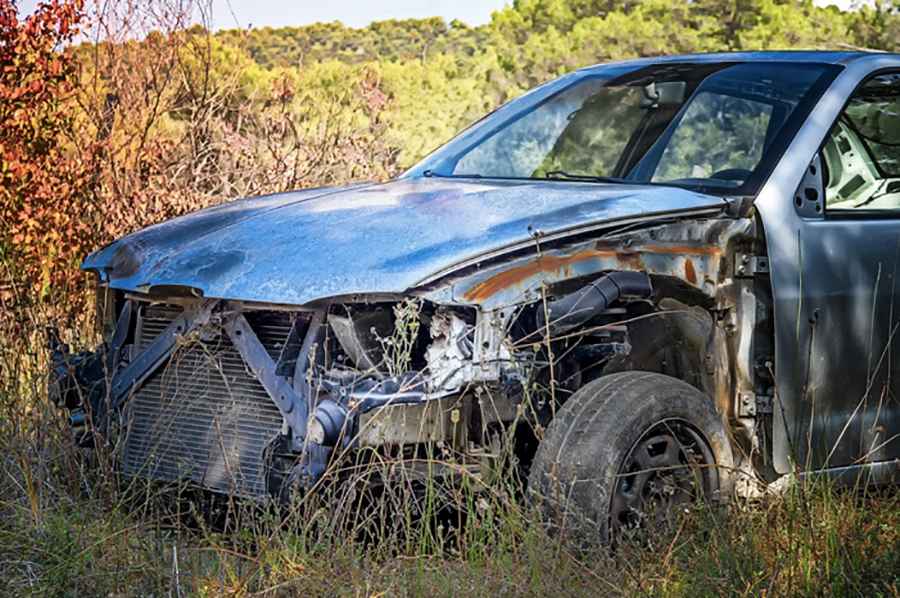The Anatomy of Risk: 7 Critical Causes of Accidents on Extreme Routes
On the world’s most dangerous highways, the statistics move beyond simple fender-benders. With millions of road incidents recorded annually, the causes in remote or high-altitude environments are often more complex than in urban settings. When help is hours or days away, understanding the primary triggers of failure—human, mechanical, and environmental—is the only way to mitigate the inherent risks of expedition travel.

| High-Risk Accident Factors | |
|---|---|
| Cognitive Failure | Fatigue and "Target Fixation" on sheer drop-offs. |
| Physics of Speed | Inertia on loose gravel and brake fade on long descents. |
| Environmental Shift | Rapid weather changes and unpredictable road erosion. |
1. Cognitive Overload and Fatigue
In high-stakes driving, distraction isn't just about a smartphone; it’s about mental exhaustion. Navigating technical terrain for hours leads to "cognitive overload," where the brain fails to process vital sensory input. On remote passes, even a split-second of daydreaming or target fixation—staring at the hazard instead of the path—can lead to a terminal error. If your focus wavers, the only survival strategy is to stop and rest before the road demands a price you cannot pay.
2. The Physics of Velocity on Loose Surfaces
Speeding on dangerous roads isn't about breaking the law; it's about breaking the laws of physics. High speeds on unpaved or gravel surfaces drastically reduce traction and increase your stopping distance exponentially. Kinetic energy on a mountain descent can quickly overwhelm your braking system, leading to "brake fade." Controlling your velocity is about maintaining a safety buffer that allows for the unexpected—a sudden landslide or an oncoming truck around a blind hairpin.
3. Impaired Judgment: Altitude and Substance
While driving under the influence of alcohol or drugs is a universal danger, expedition drivers also face "hypoxia" at high altitudes, which mimics the effects of intoxication. Impaired judgment leads to risky overtaking and a false sense of security. Whether the cause is chemical or environmental, a reduced reaction time on a narrow ledge is almost always fatal. Self-awareness of your physical state is mandatory for high-altitude transit.
4. Reckless Maneuvers and Right-of-Way
Reckless driving in the wilderness often takes the form of failing to yield on single-track roads or aggressive positioning in "no-pass" zones. Road rage on remote tracks is particularly dangerous, as it often involves heavy, high-clearance vehicles. Respecting the "Priority to the Ascending Vehicle" rule and maintaining a calm, defensive posture is essential to avoid the cascading effect of a multi-car incident in areas with zero emergency response.
5. Dynamic Road Erosion and Surface Failure
Unlike urban potholes, "poor road conditions" on dangerous highways mean sudden shoulder collapses, deep washouts, and active rockfalls. Pavements can crack and slide away without warning. Experienced drivers scan for "surface cues"—changes in soil color or moisture—that indicate the road beneath them is no longer structurally sound. If the path appears compromised, scout on foot or find an alternative route immediately.
6. Mechanical Integrity: Points of Failure
Faulty equipment is a leading cause of accidents in extreme terrain. A tire blowout on a steep embankment or a brake line failure on a 15% gradient turns a vehicle into an uncontrollable projectile. Regular inspections of high-stress components—suspension bushings, brake fluid boiling points, and tire sidewall integrity—are not suggestions; they are survival requirements. Never ignore a mechanical warning sign when heading into an isolated zone.
7. Meteorological Volatility
In alpine or desert environments, weather doesn't just change; it attacks. Flash floods, sudden blizzards, and "black ice" on shaded curves can render a road impassable in minutes. Bad weather requires a total shift in driving style: lower speeds, increased following distances, and the immediate use of high-visibility lighting. If visibility drops to zero or the surface becomes too slick for your tires, the only safe move is to park in a sheltered "safe zone" and wait for the front to pass.
Conclusion
The majority of road accidents are preventable through foresight and discipline. By respecting the limits of your vehicle, your environment, and your own biology, you can navigate the world's most challenging roads safely. On an expedition, the goal is to master the risks, not to ignore them.